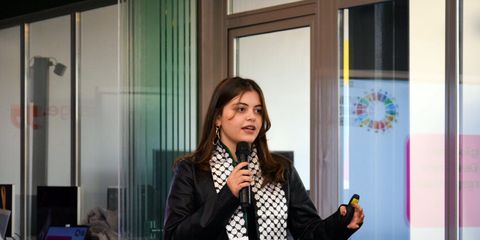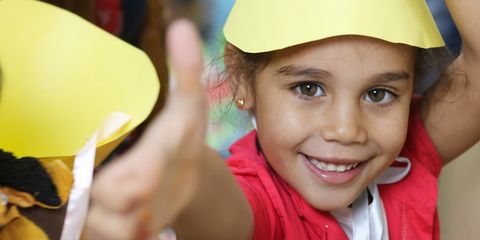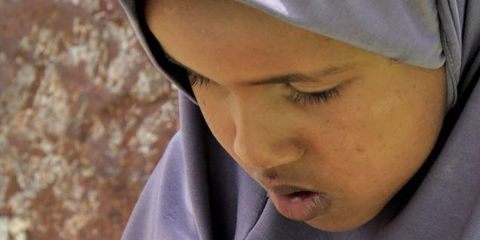Despite being born with disabilities, Selim*, 5, is not being held back thanks to Plan International Jordan’s inclusive early childhood care and development programme.
When Selim* puts on a fireman’s costume, he lights up. He can’t wait to show his classmates.
Five-year-old Selim is attends Plan International Jordan’s Early Childhood Education and Development (ECD) programme in Amman. As a child with mental and speech disabilities, Selim presents unique challenges to teachers Saja and Jawahir.
“At first when he came to the centre, he didn’t get along with others and didn’t know how to play with the other children,” Saja says.
Because Selim had trouble communicating his needs, he would become aggressive, grabbing the teacher’s arm when he needed help or pushing other students. The ECD classroom space would overwhelm Selim, and as a result, he would not play with anything.
“He would always be looking to the door for mom or dad,” Selim’s mother recalls.
Learning through play
Now, after one semester Selim’s behaviour and social skills are much improved. He has started to recognise letters and shapes and finds his favourite games and invites the other children to play with him.
When he smiles and gets excited, it makes me smile.
Selim enjoys playing with the construction toolkit as well as making things with building blocks. He also helps his teachers not only by being more attentive, but also by volunteering to participate.
Saja notes that Selim has also started to express himself and talks about his feelings more easily. “He can tell me what he is feeling and has got better at being on his own without his parents.”
The ECD programme provides children with key skills they will need at school and teaches them important social skills, like sharing, respecting others, and helping their peers. For Saja and Jawahir, this means also teaching Selim’s classmates how to interact with him.
Building friendships
“At first, the other children used to be hesitant around Selim, and they didn’t understand why he was a bit different from them. But now, they love playing with him and if he doesn’t come to class, they will ask where he is,” Saja says.
This is apparent when Selim’s friend, Yaqoub, enters the classroom and greets Selim with a friendly handshake. Selim jumps up and immediately invites Yaqoub to colour with him.
“He has started to recognise the centre and looks forward to coming to the programme,” Selim’s mother states. “And even his behaviour at home has got better.”
When Saja talks about Selim’s improvement, she feels pride. “Every time he identifies something and names it aloud, it makes me happy. And when he smiles and gets excited, it makes me smile.”
*Name changed to protect identity.


